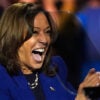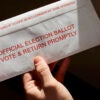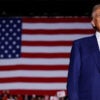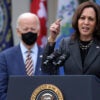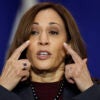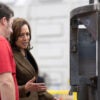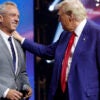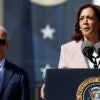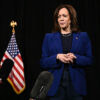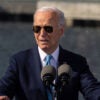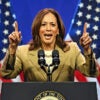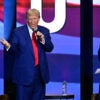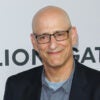The traditional TV networks continue to offer obvious home-field advantages to Democrats in this year’s election debates, as they have for as long as I’ve observed politics.
But Sen. JD Vance, R-Ohio, delivered a master class in how to deal with biased moderators in his vice-presidential showdown Tuesday night with Minnesota Gov. Tim Walz, a Democrat.
Not only did Vance, Donald Trump’s running mate, handle obviously skewed questions. He also refused to allow the moderators—“CBS Evening News” anchor Norah O’Donnell and “Face the Nation” chief foreign affairs correspondent Margaret Brennan—to live “fact-check” him without calling them out on it.
More on that in a bit.
There’s no doubt that the CBS News moderators of Tuesday night’s vice presidential debate were nearly as biased as the ABC News moderators in the Sept. 10 presidential debate. Their questions were mostly cherry-picked to be of more interest to a left-leaning audience, and they clearly steered the discussion toward topics that benefit Democrats.
Climate change is a bottom-tier issue in poll after poll for the American people, but it’s superimportant to a narrow band of highly engaged liberals. So, we get a climate question in every single debate, while somehow issues like the threat of Communist China seemingly never come up.
This kind of bias has been a problem for a very long time, though the media is far more shameless than they used to be. In 2012, CNN host Candy Crowley actually apologized for live fact-checking Republican nominee Mitt Romney in his debate with incumbent Democrat Barack Obama. A lot has changed since then.
They don’t just ask biased questions these days; they now actively participate in the debate to help whatever Democrat is on stage.
There was a funny moment, at least to me, when Vance pushed Walz, Kamala Harris’ running mate, on a Minnesota law that allows babies to be killed after a botched abortion. It was a law that Walz signed.
But Walz didn’t and seemingly couldn’t answer the question.
Instead, Walz just pointed to the moderators and said they “fact-checked” it last time. He clearly wanted the “moderators” to step in and help him.
They didn’t deliver the life preserver this time, but it’s understandable why Walz thought they would.
Presidential and vice presidential debates shouldn’t be like this. The media should be letting politicians speak for themselves. But it appears that the networks can’t help themselves.
To a certain extent, Republicans are in a tough spot. It’s clear that Democrats are simply unwilling to participate in a debate that isn’t on their home field. And having no presidential and vice presidential debates at all—especially given that Walz and Harris so rarely have to answer tough questions—would be bad for the country.
Given this challenging environment, Vance did a remarkable job of staying on message, answering questions seriously—but on his terms—and delivering clear, logical answers to every question.
And when the two moderators became obnoxious about interjecting and live fact-checking (even though CBS News said they wouldn’t), Vance didn’t just let it go.
Trump said after the ABC News debate that he regretted not going after the biased moderators, and Vance seemed to have learned from that.
When Brennen tried to interject with a comment on Haitian illegal immigrants in Springfield, Ohio, before moving on to the next question, Vance stopped her. She tried to cut him off with a “we just don’t have time with all these questions to allow you to respond,” but Vance wasn’t having it.
“Margaret, the rules were that you guys weren’t going to fact-check, and since you are fact-checking me I think it’s important to say what’s actually going on,” Vance said.
The Ohio Republican went on to explain how illegal aliens can use a government app, CBP One, to apply for legal status, which he said was a part of the Biden-Harris administration’s open border policies.
The moderators continued trying to stop Vance, but he kept speaking. They even cut off his microphone. But Vance didn’t look reckless or like a boor. He looked like a guy who took the discussion—and the intelligence of the American people—seriously.
This is how it should be done. The only people who looked bad in the exchange were the CBS moderators.
Vance is clearly quite good at this, but one way or another he provided the model for how to walk into a biased debate and come out looking better at the end of it.
It will certainly be difficult to convince the American people that Vance is “weird” after that.
This article has been corrected to reflect which networks hosted the debates.
